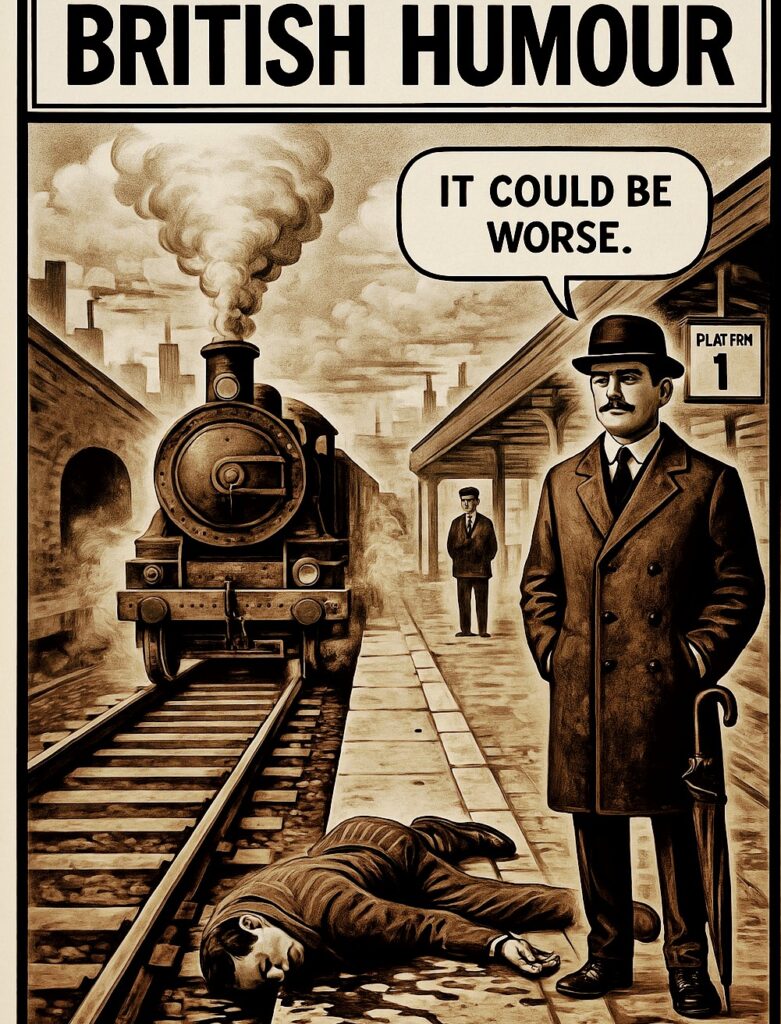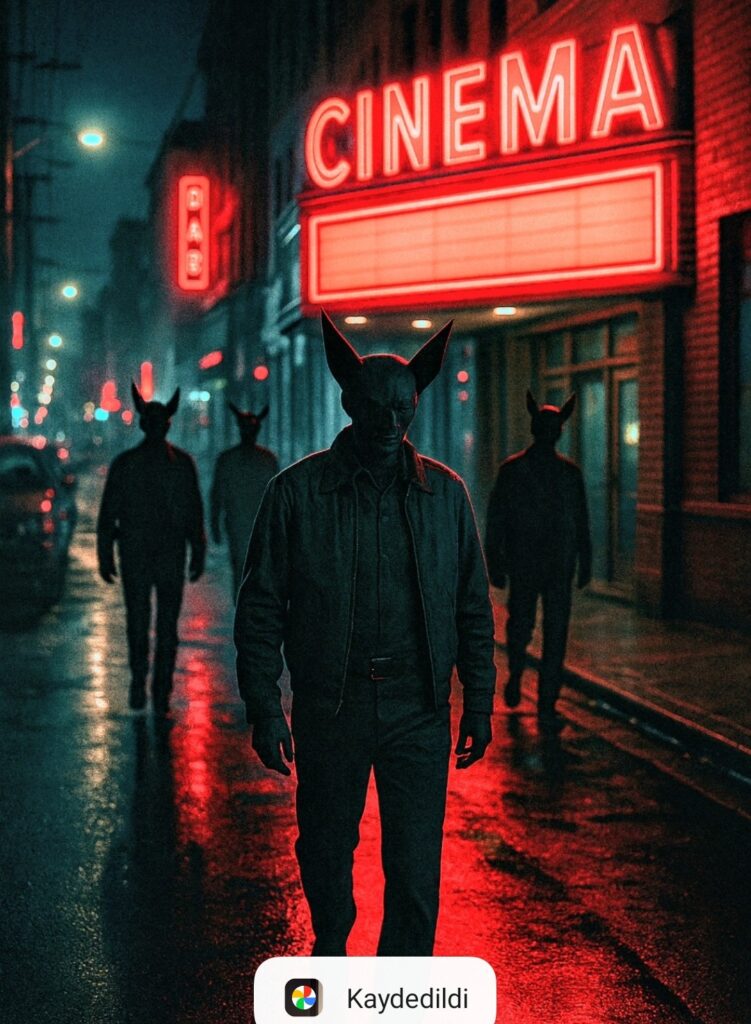Nolan And The Future Is Now
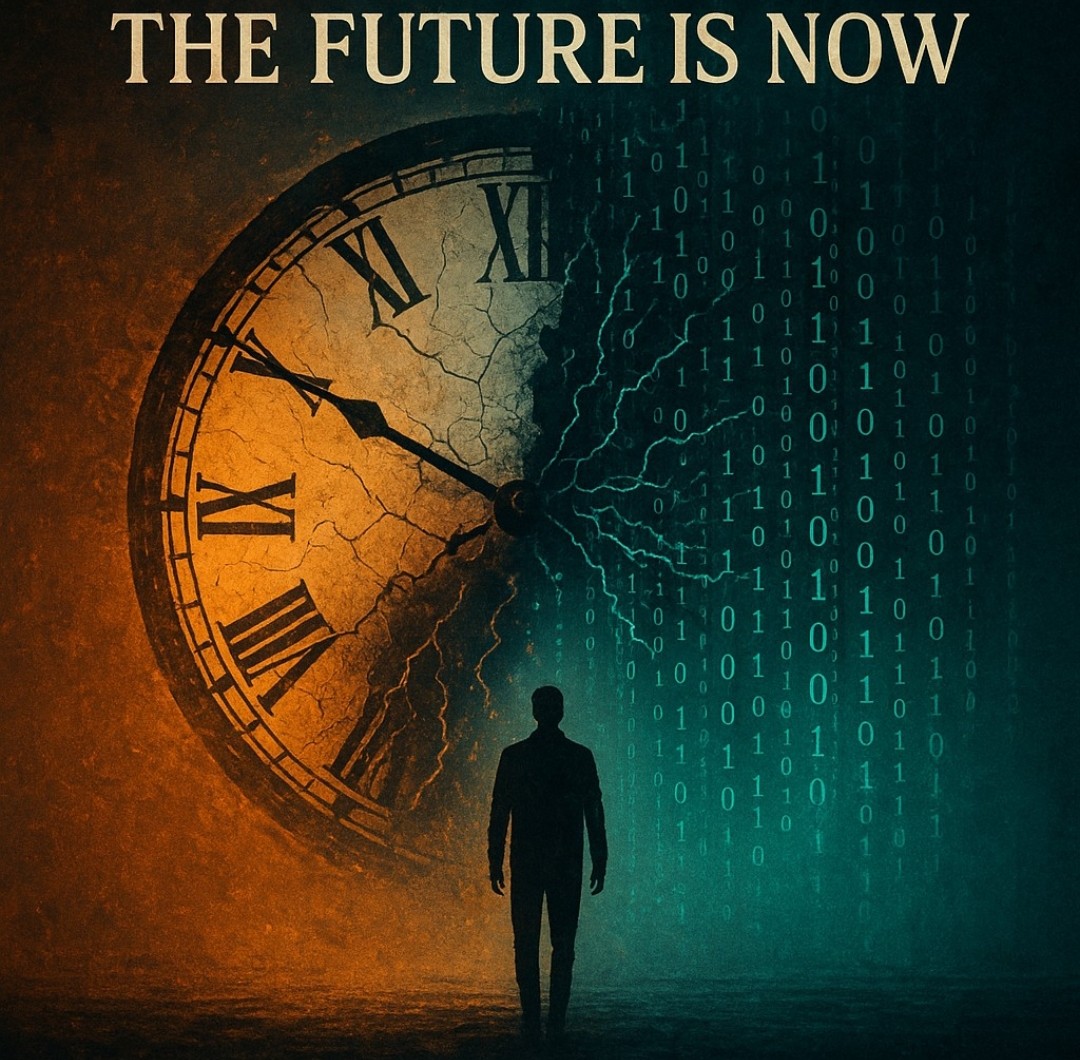
When I say ”Nolan And The Future Is Now”, what would you think ?
Everything that is recorded speaks to the future. / Tenet
“The future is now” is not just a slogan — it is a Nolan-style paradox. We cannot wait for time to deliver clarity. We are already inhabiting tomorrow’s questions, already entangled in the technologies and consequences of the future. Like Nolan’s characters, we stumble forward, haunted by the past, propelled by futures that are already here.
Christopher Nolan’s films (like Inception, Interstellar, Tenet, Oppenheimer) often present time not as a line but as a loop, fracture, or multidimensional fabric. Saying “the future is now” fits his obsession with how past, present, and future blur into one experiential whole. In a very Nolan-esque sense, the “future” is already folded into the present, just waiting to be perceived.
When we say “the future is now”, we are breaking the linear illusion of time. Normally, we think of past → present → future as a straight line. But in reality, the present moment is already saturated with the seeds of the future. Every innovation, every choice, every word spoken is a piece of tomorrow materializing today.In this sense, the future is not “ahead” — it is folded inside the present, waiting to be unfolded.
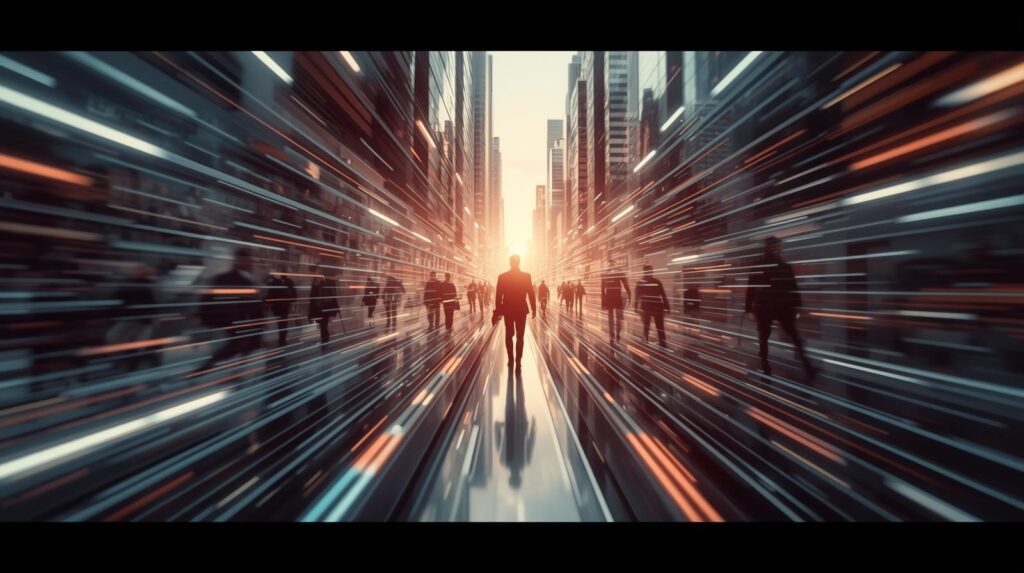
The Future Is Now: A Nolan-Style Paradox
Time becomes short-term. People live in fragments, with no enduring commitments.The future loses stability. Planning ahead feels impossible in a world that changes too quickly.The present dominates. Consumer culture thrives on immediacy: what is new today is outdated tomorrow.
Digital economies redefine value and labor.What was once speculative has entered our living rooms. The rhythm of technology has collapsed the distance between imagination and reality. Thus, “the future is now” is also a diagnosis of our age: the pace of change is faster than our ability to prepare.
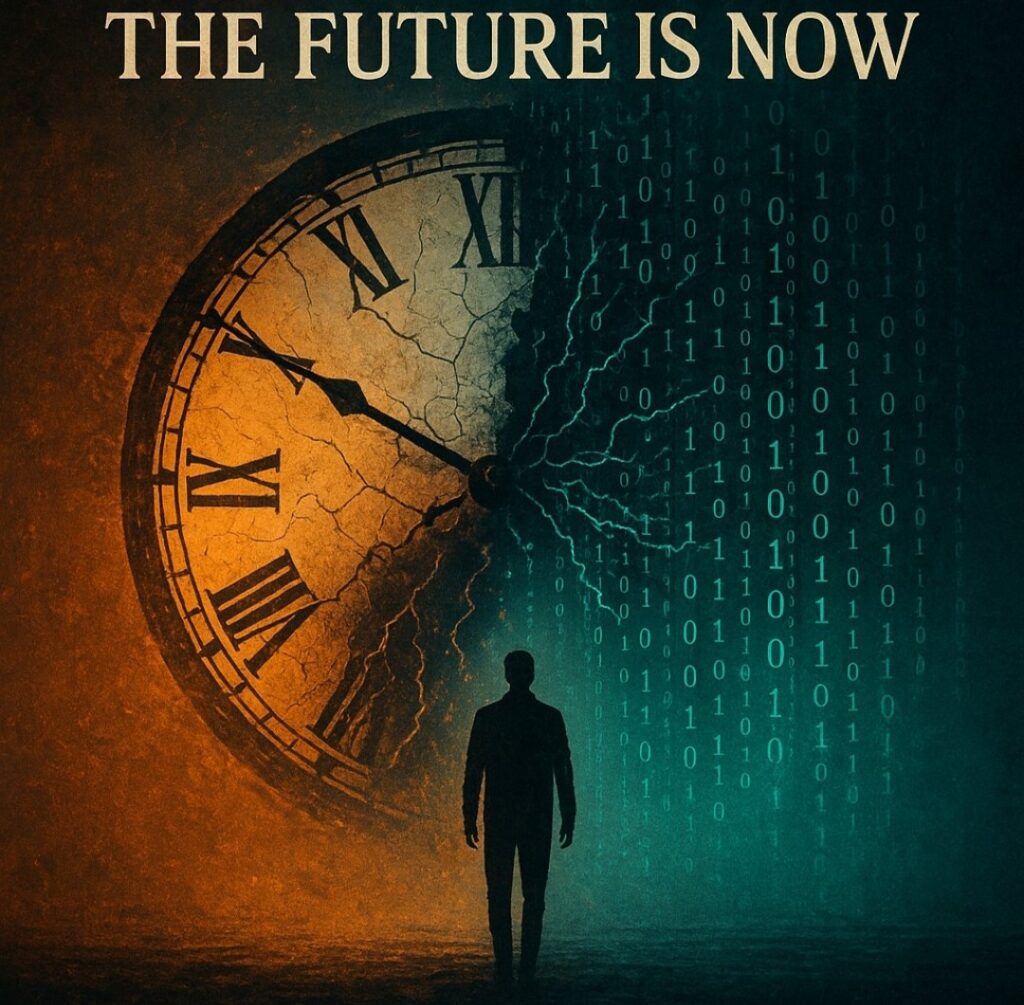
In Christopher Nolan’s cinema, time is never a neutral backdrop. It is the stage, the actor, and the director all at once. From the fractured memories of Memento to the inverted entropy of Tenet, Nolan treats time as a living organism that shapes human choices. To say “the future is now” in his world is not a cliché, but a literal condition: every decision already folds tomorrow into today, every present moment is a future collapsing into itself.
Cinema as Temporal Engineering
Nolan’s films often feel like machines that engineer perception. Watching Inception or Interstellar is like stepping into a chamber where linear chronology is dismantled. In this sense, Nolan’s cinema makes us live in the paradox of the “now” containing all futures at once.

The 21st century itself increasingly resembles a Nolan narrative. Digital acceleration, artificial intelligence, instant communication — all compress the distance between future and present. Climate anxieties, technological revolutions, geopolitical shifts: they arrive faster than our psychological capacity to process them. Nolan’s stories mirror this dissonance, reminding us that the future does not come from outside — it erupts from within the now.
Yet beneath the spectacle, Nolan always places fragile humans. Cooper in Interstellar, Leonard in Memento, Oppenheimer facing the weight of invention — they all reveal how unbearable it can be when the present becomes too saturated with future consequences. To live in the “now” is to carry futures we cannot fully control, unfolding structures of time.
The challenge is not to predict the future, but to endure its presence in our daily now.
For all of human history, we hunted in tribes, worked in villages, an gathered to eat around fires every night. Every life was woven into a fabric of belonging. Today, that fabric is torn. Families scatter, neighbors don’t know eachother’s names, and friendship vanish into the shallow currency of likes and follows. The result is not lonelines nut an absolute collapse of belonging. This the the paradox of modernity. We built a world that conquered nature, only to find that it conquered us.
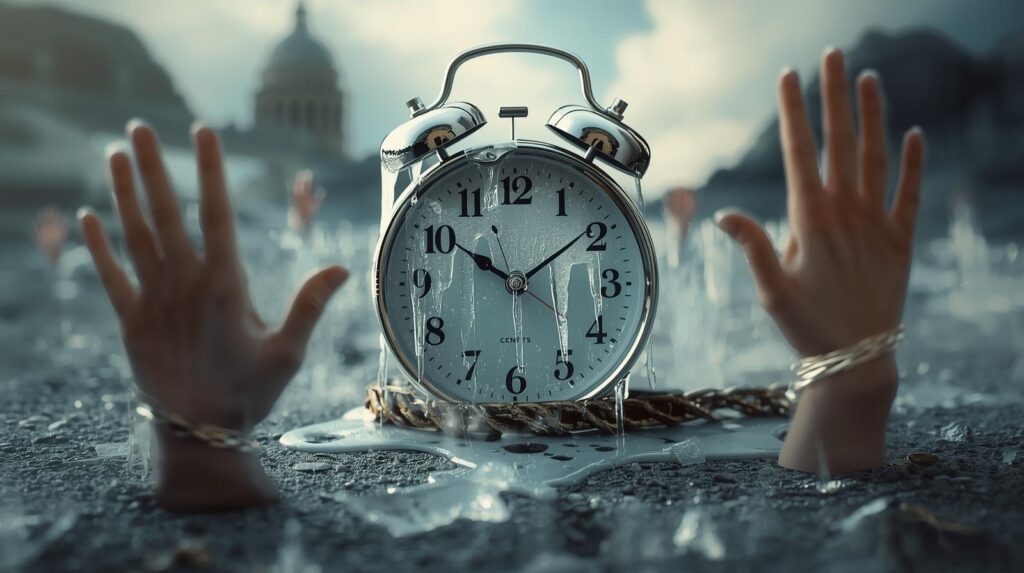
Nolan And The Future Is Now: Result is Volatile Existence
Nolan is obsessed with the passing of time. Maybe he try to allow us to remember the temporary of everything in this world. Time is overlapped human conditions with strict modernity. Byung Chul Han has demonstrated the volatility existence in modern world with his books. For instance, the scent of time shows us to expelling the resting within the passing of time. We can not smell the time anymore. Intervals dissolved and we get in stuch for the endless achievement of modernism.
the “scent of time” is a metaphor for the slowness, rhythm, and intensity lost in modern life. In our accelerating, project-driven age, time is becoming fleeting like a scent, yet also odorless. For him, the key is to re-scent time: to make it livable, tangible, and ritualistic once again.
On the other hand, Polish post-modern writer, Zygmunt Bauman articulate the liquid modernity. He describes modernity as fluid rather than solid. Because, the replacement of the ideas and actions are taking place suddenly once we try to visualize it.
| Theme | Zygmunt Bauman | Byung-Chul Han |
|---|---|---|
| Metaphor of Modernity | Liquid modernity — flexible, unstable, fleeting | Burnout society — self-exploiting, accelerated, overproductive |
| Time | Fragmented, unstable, short-term oriented | Compressed, accelerated, saturated with activity |
| Future | Uncertain, fragile, difficult to plan | Reduced to performance goals, productivity-driven |
| Present | Dominant but unstable | Overloaded and exhausting |
| Human Condition | Insecurity, consumer-driven anxiety | Burnout, depression, loss of contemplative life |
